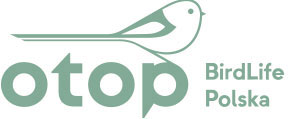The project „Exchange of Icelandic and Polish Experience in Peatland Restoration for Biodiversity and Climate”.
Project duration: 20.05.2022 – 31.07.2023.
Total budget: 96 661,77 PLN. OTOP budget: 77 141,72 PLN.
Partners: Fuglavernd – BirdLife Iceland.
Institutions linked to the project: The Royal Society for the Protection of Birds (RSPB), NatureBureau, Ltd.
Funding: implemented with the financial support of the National Fund for Environmental Protection and Water Management from the European Economic Area Financial Mechanism under the Environment, Energy and Climate Change Bilateral Cooperation Fund and the British Royal Society for the Protection of Birds (RSPB).

Peatland ecosystems have been degraded by mass drainage activities on a European scale, which has led to a significant loss of wetland biodiversity, including migratory bird species such as the Eurasian curlew, Black-Tailed godwit, Redshank or Lapwing. Furthermore, drained peatlands are the most condensed carbon deposit and carbon source among terrestrial ecosystems. Occupying about 0.3 per cent of the global surface, they emit 2Gt of CO2 each year, which is about 5 per cent of global annual anthropogenic carbon emissions (Joosten et al. 2015), so drained peatlands represent a cost-efficient opportunity to mitigate climate change through re-wetting, contributing to the reduction of greenhouse gas (GHG) emissions. In comparison, the potential of global forests to mitigate climate change is only 2.5 times higher with a significantly larger occupied area (Federici et al. 2015).
Currently, peatland restoration through re-wetting faces a number of problems of both methodological and practical nature. One of these is the problem of estimating the extent of emission reductions from drained peatlands. Unlike in forested areas where greater GHG emission reductions can be counted using a method similar to the timber volume estimation method standardly used by foresters – neither peat layer nor carbon emissions are directly observable and their direct instrumental measurement is expensive. Also under discussion is the choice of appropriate re-wetting techniques and the management of re-wetted areas in a way that promotes the rapid recovery of peatland biodiversity and natural peat-generation processes. A separate issue is the creation and commodification of carbon credits from restored peatlands so that, in the long term, they provide a source of funding for climate change mitigation and peatland biodiversity conservation projects.
Peatland habitat restoration and climate change mitigation measures involving peatland renaturisation/re-wetting are particularly recommended for countries with extensive degraded peatlands, which include Iceland and Poland. The innovative nature of peatland restoration requires an international exchange of experience on the methods used for the initial identification and selection of sites for restoration, estimation of GHG emission reductions, practical application of re-wetting techniques, monitoring and support for peatland biodiversity restoration, and creation of carbon credits with the prospect of sale on voluntary markets.
The bilateral Polish-Icelandic project entitled ‘Exchange of Icelandic and Polish Experience in Peatland Restoration for Biodiversity and Climate’ aimed to collect, describe and compare methods and practices used in the field of restoration in both countries, as well as to organise a direct exchange of experience between experts involved in these activities on the occasion of participation in joint field workshops and conferences. Cooperation in this sphere between Poland and Iceland is particularly valuable due to the differences in natural, climatic, socioeconomic and institutional conditions. In addition, a number of projects for the restoration of drained peatlands through re-wetting have been implemented in recent years in both Iceland and Poland. Both the Polish Society for the Protection of Birds and Fuglavernd – BirdLife Iceland – which are both Project Partners and partner organisations within the global BirdLife International network – have experience in implementing projects on this topic.
Within the framework of the project activities in both countries, field meetings of experts were held, Hands On Manual summarising experience and best practice in peatland restoration from Iceland and Poland were prepared, practical workshop for experts was organised in the Lublin voivodeship and a final conference of the project was held in Iceland. The exchange of experience and the international cooperation of experts established during the project provide a basis for defining and promoting internationally the good practices used by both countries.
Federici, S. et al. (2015) New estimates of CO2 forest emissions and removals: 1990–2015. Forest Ecology and Management. 352: 89-98.
Joosten, H. et al. (2015) MoorFutures® Integration of additional ecosystem services (including biodiversity) into carbon credits – standard, methodology and transferability to other regions. BfN-Skripten 407.


